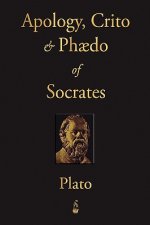
Kod: 04866442
Impartial Spectator
Autor David Daiches Raphael
D. D. Raphael provides a critical account of the moral philosophy of Adam Smith, presented in his first book, The Theory of Moral Sentiments. Whilst it does not have the same prominence in its field as his work on economics, The ... więcej
- Język:
 Angielski
Angielski - Oprawa: Twarda
- Liczba stron: 152
Wydawca: Oxford University Press, 2007
- Więcej informacji o książce

Zobacz książki o podobnej tematyce
-

Spectator Bird
51.69 zł -23 % -

Kata & Free Fighting - The Hidden Link
73.04 zł -

Introduction to Information Systems, Loose Leaf
341.33 zł -

Inventions and Sinfonias
88.74 zł -7 % -

Web Designer's Idea Book Volume 2
125.58 zł -

Opera From the Greek
899.01 zł -

Composition Theory for the Postmodern Classroom
212.12 zł
Bon podarunkowy: Radość gwarantowana
- Podaruj bon o dowolnej wartości, a my się zajmiemy resztą.
- Bon podarunkowy dotyczy całej naszej oferty.
- Możesz wydrukować elektroniczny bon z e-maila a następnie przekazać go obdarowanemu.
- Ważność bonu wynosi 12 miesięcy od daty wystawienia.
Więcej informacji o Impartial Spectator
Za ten zakup dostaniesz 277 punkty
 Opis
Opis
D. D. Raphael provides a critical account of the moral philosophy of Adam Smith, presented in his first book, The Theory of Moral Sentiments. Whilst it does not have the same prominence in its field as his work on economics, The Wealth of Nations, Smith's writing on ethics is of continuing importance and interest today, especially for its theory of conscience. Smith sees the origin of conscience in the sympathetic and antipathetic feelings of spectators. As spectators of the actions of other people, we can imagine how we would feel in their situation. If we would share their motives, we approve of their action. If not, we disapprove. When we ourselves take an action, we know from experience what spectators would feel, approval or disapproval. That knowledge forms conscience, an imagined impartial spectator who tells us whether an action is right or wrong. In describing the content of moral judgement, Smith is much influenced by Stoic ethics, with an emphasis on self-command, but he voices criticism as well as praise. His own position is a combination of Stoic and Christian values. There is a substantial difference between the first five editions of the Moral Sentiments and the sixth. Failure to take account of this has led some commentators to mistaken views about the supposed youthful idealism of the Moral Sentiments as contrasted with the mature realism of The Wealth of Nations. A further source of error has been the supposition that Smith treats sympathy as the motive of moral action, as contrasted with the supposedly universal motive of self-interest in The Wealth of Nations.
 Szczegóły książki
Szczegóły książki
Kategoria Książki po angielsku Humanities Philosophy Ethics & moral philosophy
473.75 zł
- Pełny tytuł: Impartial Spectator
- Podtytuł: Adam Smith's Moral Philosophy
- Autor: David Daiches Raphael
- Język:
 Angielski
Angielski - Oprawa: Twarda
- Liczba stron: 152
- EAN: 9780199213337
- ISBN: 019921333X
- ID: 04866442
- Wydawca: Oxford University Press
- Waga: 304 g
- Wymiary: 178 × 224 × 14 mm
- Data wydania: 25. January 2007
Ulubione w innej kategorii
-

Wholeness and the Implicate Order
95.26 zł -

Moral Landscape
52.20 zł -15 % -

On Human Nature
65.35 zł -4 % -

Beyond Good and Evil
56.31 zł -23 % -

Lying
62.43 zł -14 % -

Beyond Good and Evil
38.14 zł -23 % -

Skin in the Game
52.20 zł -15 % -

The Genealogy of Morals
28.90 zł -23 % -

On Bullshit
43.66 zł -12 % -

After Virtue
111.53 zł -9 % -

Doing Good Better
52.20 zł -15 % -

Civil Disobedience and Other Essays
15.25 zł -23 % -

Ethics
62.43 zł -14 % -

Parmenides
45.37 zł -

Responsibility and Judgment
85.32 zł -5 % -

Usefulness of Useless Knowledge
45.37 zł -4 % -

Apology, Crito and Phaedo of Socrates
45.37 zł -

Matters of Care
171.46 zł -

Beyond Good and Evil
64.14 zł -

On Friendship
126.08 zł -10 % -

Principia Ethica
48.58 zł -

Freedom as a Value
132.21 zł -5 % -

Integrity
96.67 zł -

Meditations
38.14 zł -23 % -

Against Empathy
52.20 zł -15 % -

Theory of Moral Sentiments
70.16 zł -23 % -

What We Owe to Each Other
163.53 zł -

On Truth and Untruth
42.56 zł -23 % -

Better Never to Have Been
180.70 zł -

Reasons and Persons
133.91 zł -

Inventing the Individual
51.69 zł -23 % -

Beyond Freedom and Dignity
98.17 zł -10 % -

Precipice
120.76 zł -4 % -

A Confession
33.52 zł -23 % -

What Money Can't Buy
48.78 zł -14 % -

Will to Power
47.18 zł -23 % -

Ethics in the Real World
85.52 zł -11 % -

Justice
73.38 zł -15 % -

On Human Nature
137.93 zł -

Protagoras
122.87 zł -

Oxford Handbook of Business Ethics
328.18 zł -

Human Life, Action and Ethics
103.50 zł -5 % -

Getting Back into Place, Second Edition
169.35 zł -

New Approach to Utilitarianism
284.81 zł -

Evidential Argument from Evil
155.20 zł -

Oxford Studies in Metaethics 11
243.75 zł -

Why It's OK to Want to Be Rich
121.17 zł -

Moral Theory - A Non-Consequentialist Approach
323.86 zł -

Radical Sacrifice
63.34 zł -4 %
zadowolonych klientów
Od roku 2008 obsłużyliśmy wielu miłośników książek, ale dla nas każdy był tym wyjątkowym.
Copyright! ©2008-24 libristo.pl Wszelkie prawa zastrzeżonePrywatnieCookies



 21 milionów książek
21 milionów książek Dostawa 10.99 zł
Dostawa 10.99 zł (32) 444 93 66 (8-15.30h)
(32) 444 93 66 (8-15.30h)